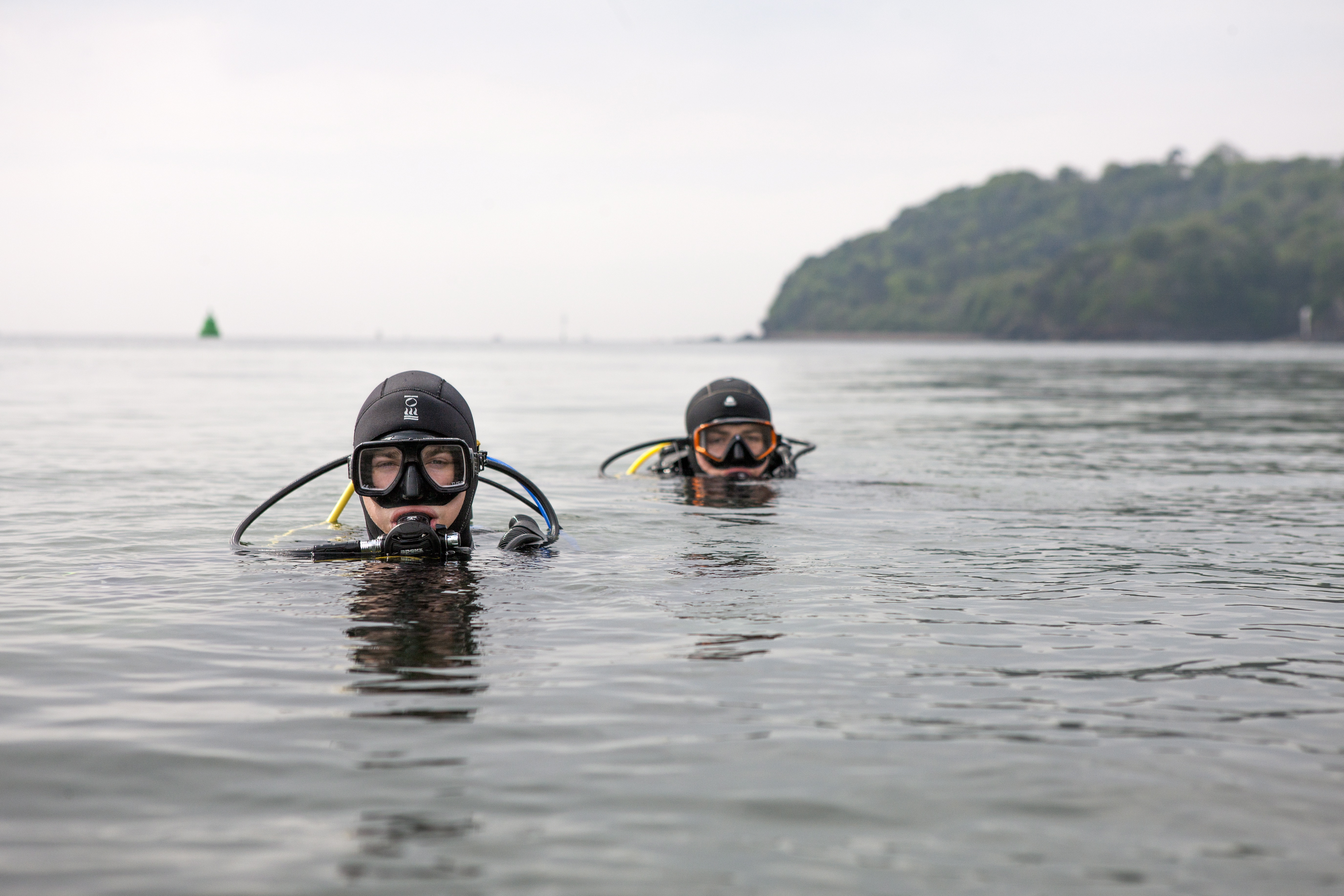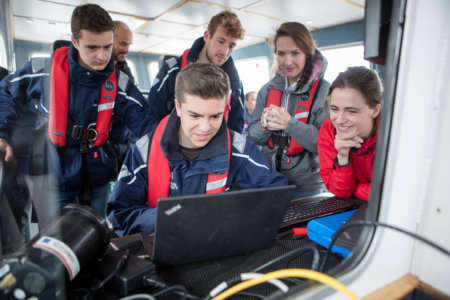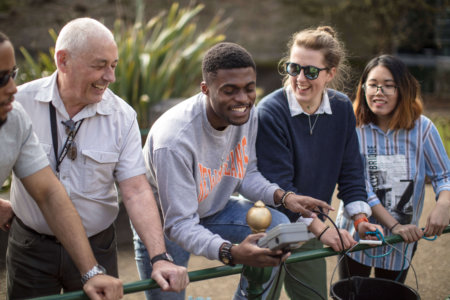MSc Zoo Conservation Biology
Hands-on and experiential learning, through fieldtrips and real-world skills development, is what employers are increasingly looking for in the graduates they recruit; it’s also of enormous benefit to students’ understanding, especially for those with multiple learning disabilities, such as Martie Stothoff.

Martie Stothoff (USA), pictured, would like to go on to be a welfare/behaviour consultant or director at a zoo. Source: University of Plymouth
“The MSc Zoo Conservation Biology programme was a lot more hands-on [compared to other uni’s]. The programme is partnered with Paignton Zoo, so twice a week classes are on campus and twice a week classes are at the zoo. I got to learn from various people who are currently doing the type of work I would like to do one day,” enthuses Stothoff.
Indeed, those with a strong passion for zoo and animal behaviour will love what the MSc Zoo Conservation Biology programme offers: behind-the-scenes insight with the University’s industry partners at Paignton Zoo and its parent body, Wild Planet Trust, that oversees the UK and international conservation work of Paignton and Newquay Zoo. The programme includes visits to, and guest speakers from, Paignton’s broader collaborative network of zoos and conservation organisations. Students can extend this industry experience by conducting immersive research projects within zoos. For the 2022/23 academic year, students can undertake a six month to one year optional placement as well.
Uniquely, students’ time on this MSc programme is split evenly between the zoo and the University. The teaching at the University of Plymouth connects students to the fundamental and applied research that underpins conservation work and advances in animal welfare and husbandry. Students benefit from the knowledge and guidance of the University’s expert staff, with staff specialisms including applications of technology, to the study of behaviour, animal nutrition and the welfare of captive birds, fish and amphibians, and population genetics of captive and natural populations.
The University’s teaching team includes members of Plymouth’s Herpetology Conservation Research Unit, and Animal Behaviour and Evolution and Ecology Research Groups, who collaborate with instutitions such as the National Marine Aquarium, Chester Zoo and London Zoo.
MSc Sustainable Aquaculture
For those with a strong interest in the sustainability of agribusiness, like student Maddy Entrekin, the University of Plymouth’s MSc Sustainable Aquaculture programme may be what you seek.
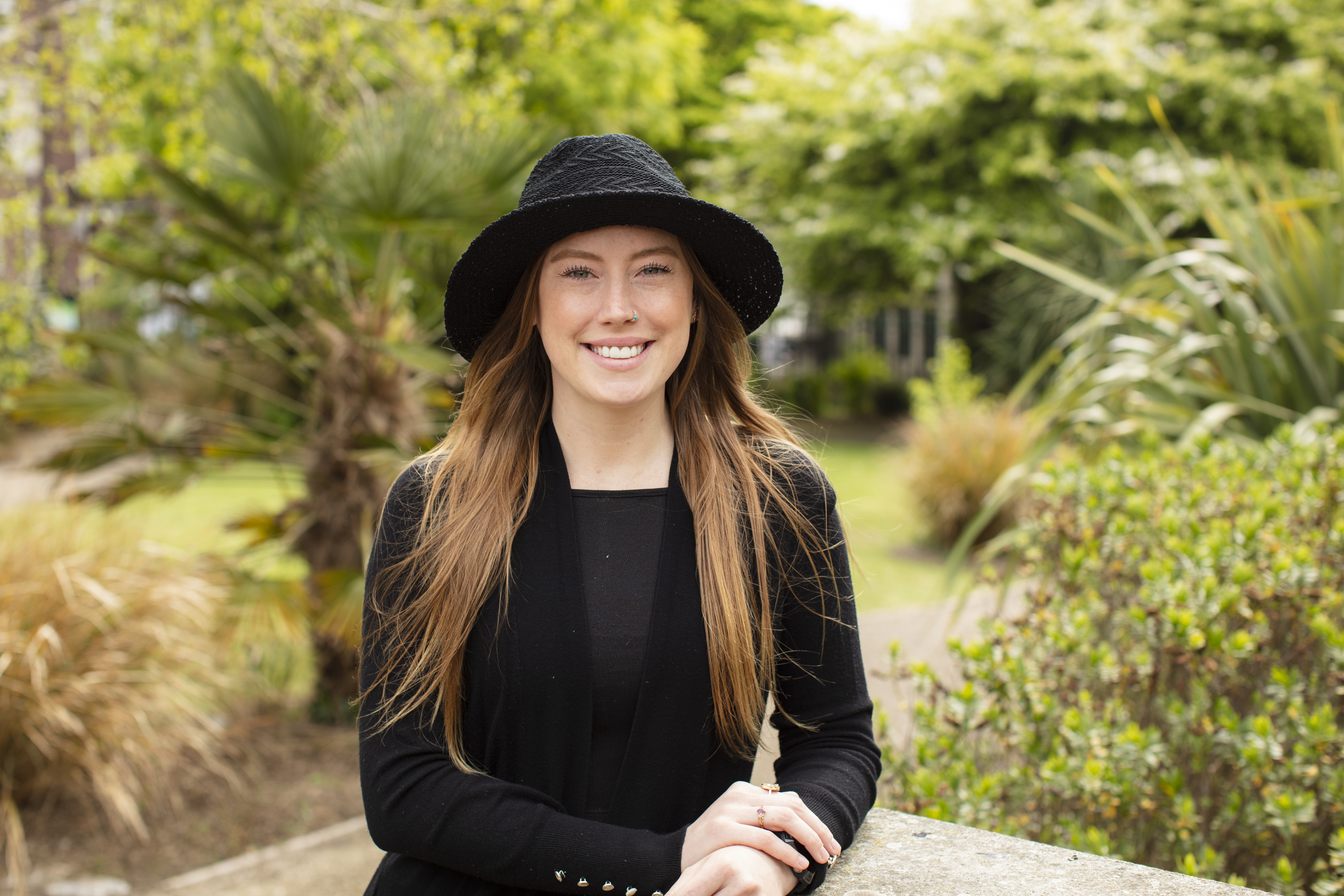
With the knowledge gained, Maddy Entrekin intends to return to the US to make a difference in the marine life community. Source: University of Plymouth
Entrekin completed her undergraduate degree programme with the University of Plymouth. Owing to her positive student experience first time around, she knew it was the right choice to remain with the University to pursue her postgraduate studies. The city’s coastal location and excellence in teaching convinced her.
“Plymouth is a beautiful coastal city and the perfect place to study marine biology and its related subjects,” she shares.
The University of Plymouth has established its leading ranking of 1st globally in relation to the United Nation’s Sustainable Development Goal 14: “Life Below Water” (Times Higher Education Impact Rankings, 2021). This accolade recognises the quality of the University’s marine research and teaching as well as its efforts to reduce the impact of campus activities on the marine environment.
With such a strong reputation, countless graduates have have forged successful careers in government bodies, environmental agencies and NGOs. This list includes: The Centre for Environment, Fisheries and Aquaculture (Cefas; UK), The Environment Agency (UK), The Soil Association (UK), The Fisheries Research Centre (Oman), the Central Fisheries Research Institute (Turkey), National Centre for Sustainable Coastal The Management (India), The Natural Environment Research Council (NERC; UK) and The Scottish Association for Marine Sciences (SAMS; UK), to name just a few. Others esteemed graduates have gone into the aquaculture and fisheries industries, or consultancies, around the globe, including: USA, Australia, New Zealand, Thailand, Malta, the Bahamas, Denmark, Cyrpus, France, Ghana, Norway and Ireland. Many are also pursuing PhD programmes as well.
For Entrekin, she plans to make a difference in her community back home once she graduates. “I feel extremely prepared for getting a job after finishing my course, and I plan to return to my home country and work for organisations like the Georgia Department of Natural Resources (DNR) or the US Fish and Wildlife Service so that I can integrate my knowledge and skills within my community and promote sustainability on local and regional levels,” shares Entrekin.
MRes Marine Biology
Meanwhile, marine biologist and behavioural ecologist in-training Ari Drummond spent almost a year searching for the right master’s programme. The University’s extensive resources for marine researchers and the MRes Marine Biology programme’s superb supervisors assured her that she had chosen the right place for her course.
Ari Drummond (USA) currently studies the behaviour of hermit crabs as part of her research, which she undertakes in the University of Plymouth’s state-of-the-art marine laboratories. Source: University of Plymouth
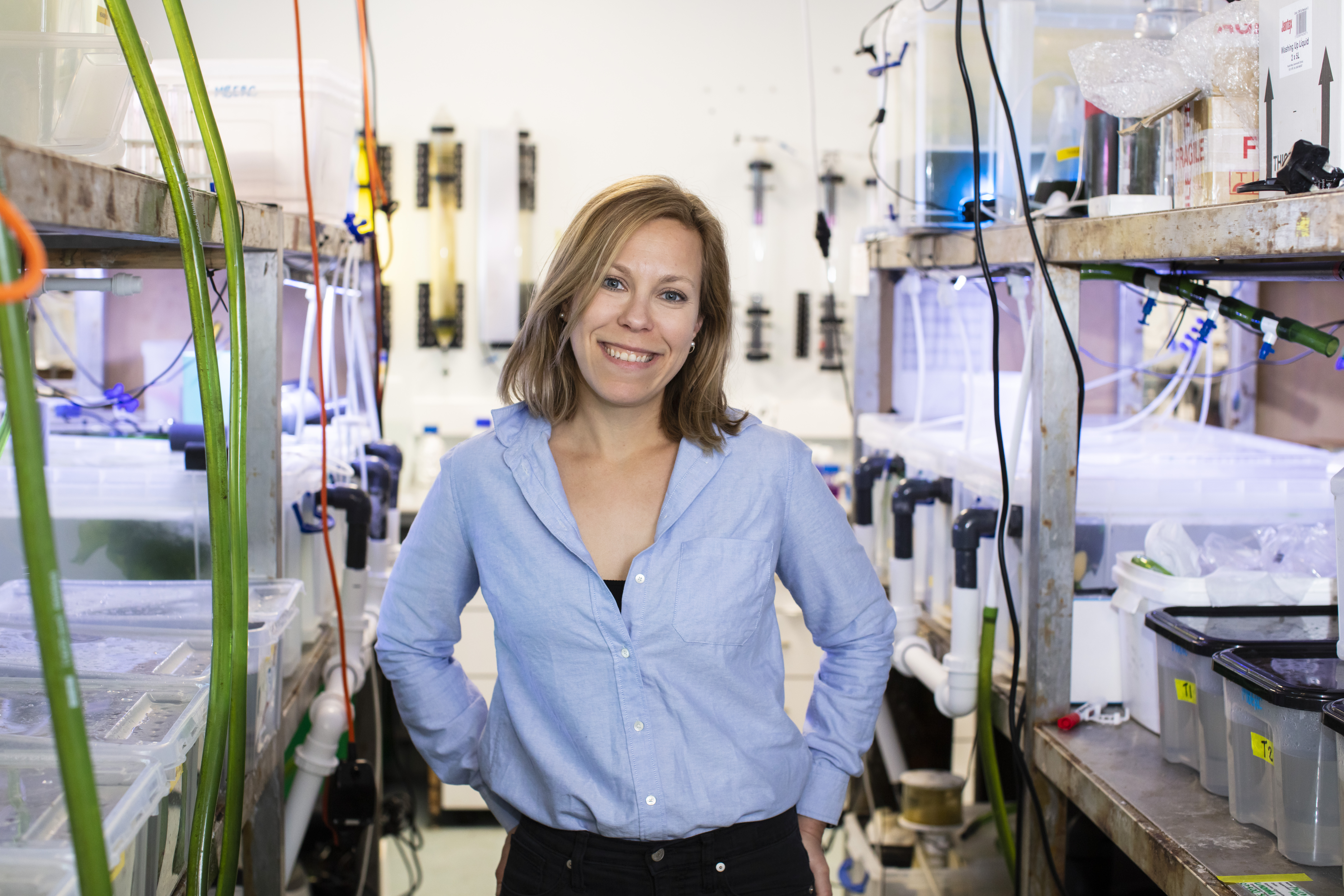
Ari Drummond (USA) currently studies the behaviour of hermit crabs as part of her research, which she undertakes in the University of Plymouth’s state-of-the-art marine laboratories. Source: University of Plymouth
“I decided to come to the University of Plymouth because of the people who work here, especially my two supervisors, Professors John Spicer and Mark Briffa, and the resources available to marine researchers in the area,” shares Drummond.
Postgraduate alumni Rama Chandra Khandavilli, who also studied MRes Marine Biology, agrees. “When I was looking for master’s programmes in Marine Biology from India, Plymouth was my first choice as I came across many research papers and articles from the University of Plymouth. Its seaside location, the opportunity for collaborative research and prospects for PhD were what sparked my interest,” he shares.
The University is committed to extensive and world-leading marine research activities. Its Marine Station — a £4.65 million landmark development — serves as the base for expeditionary work and as a research facility for students
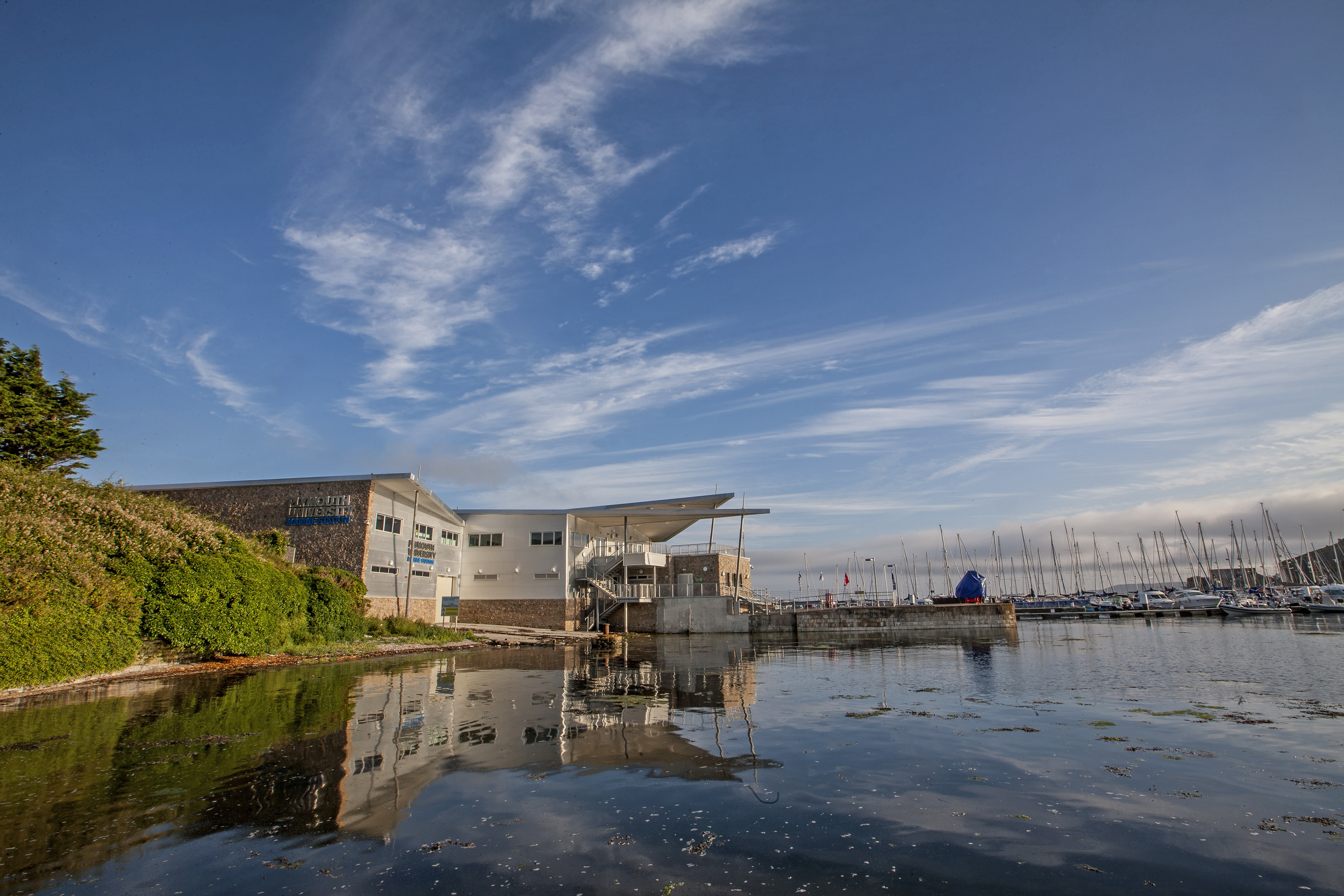
The University of Plymouth’s Marine Station, located a 15 minute walk from the University’s city centre campus, perfectly positioned on the water’s edge for marine based activity. Source: University of Plymouth
Located on the shores of Plymouth Sound, and part of the University’s waterfront campus, classrooms extend into the natural environment for an exceptional teaching experience. It includes lecture facilities overlooking the sea, a wet lab for sample examination and analysis, a seawater aquarium, field equipment storage and changing facilities, and a base for research vessels. It’s a centre of excellence for diving too, enabling students to get professional diving qualifications and develop valuable industry-relevant skills.
These will benefit students greatly and help them become pioneers in marine research. As postgraduate student Samiha Jahan Mona puts it, the programme is “designed to give you all the necessary knowledge and skills to be an effective marine biologist.”

Samiha Jahan Mona (Bangladesh), wanted to study at the world’s top university for marine impact. Naturally, her research led her to choose the University of Plymouth. Source: University of Plymouth
Your next steps…
Whether you pursue a master’s in MSc Zoo Conservation Biology; MSc Sustainable Aquaculture or MRes Marine Biology, the University of Plymouth is set to make you a pioneer. In these areas, it’s hard to beat this university with its unique combination settings for study, work and play.
Discover your perfect course and apply now via the University of Plymouth’s online postgraduate application form.
Follow the University of Plymouth on: Facebook, Instagram and YouTube.

